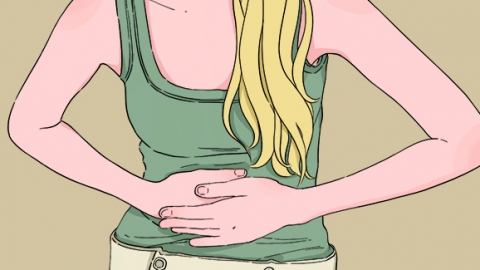Why are my periods getting increasingly delayed after childbirth, and what should I do?
Menstruation after childbirth progressively becoming delayed may be caused by breastfeeding, slow physical recovery, polycystic ovary syndrome (PCOS), hypothyroidism, or intrauterine adhesions. This can be improved through lifestyle adjustments, hormonal regulation, and medication. If the delay exceeds two weeks or is accompanied by abdominal pain or abnormal bleeding, prompt medical attention is necessary.
1. Breastfeeding effects: Postpartum breastfeeding suppresses ovulation and causes unstable hormone levels, leading to prolonged menstrual cycles with increasing delays. It is recommended to breastfeed regularly, avoid abrupt weaning, ensure adequate rest, and reduce physical strain.
2. Slow physical recovery: Deficiency of qi and blood, along with inadequate nutrition after childbirth, can delay ovarian function recovery, resulting in gradually delayed menstrual cycles. It is advised to supplement high-quality protein and iron, engage in moderate walking, and promote overall physical recovery.

3. Polycystic ovary syndrome (PCOS): Hormonal imbalances cause ovulatory dysfunction, manifesting as progressively delayed menstruation, often accompanied by hirsutism, acne, and weight gain. Under medical guidance, medications such as ethinylestradiol/cyproterone acetate tablets, dydrogesterone tablets, and spironolactone tablets may be used to alleviate symptoms.
4. Hypothyroidism: Insufficient thyroid hormone secretion affects metabolism and ovarian function, worsening menstrual delays, along with symptoms like fatigue, cold intolerance, and decreased appetite. Patients may take levothyroxine sodium tablets, thyroid tablets, or vitamin B12 supplements under medical supervision to relieve discomfort.
5. Intrauterine adhesions: Damage to the endometrium from postpartum uterine procedures can lead to adhesions that obstruct menstrual flow, causing delayed periods and reduced menstrual volume. Under medical advice, medications such as estradiol valerate tablets, conjugated estrogens tablets, and enteric-coated aspirin tablets may be used to improve symptoms.
Maintain a regular sleep schedule and avoid staying up late. Eat a balanced diet to ensure adequate nutrition, exercise moderately to strengthen the body, maintain emotional well-being, practice good genital hygiene, and minimize factors that trigger menstrual irregularities.






